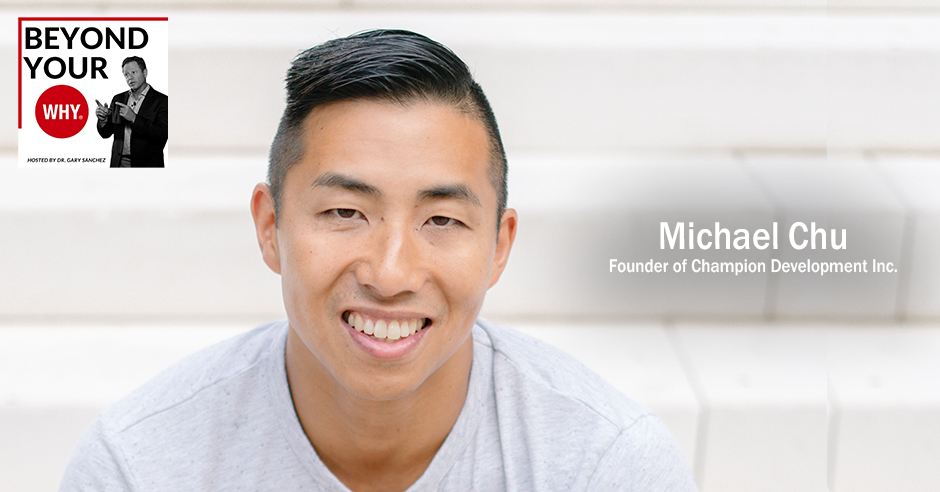
When trust is the foundation of your relationship, you will go to great lengths to demonstrate your trustworthiness. Trust is valuable in many aspects of life. In this episode, Michael Chu, the founder of Champion Development Inc., shows the value of trust in his career as a coach and how it helps build the relationship between him and his clients. Michael’s success in still having Health and Wealth Academy is his track record and how he built his trustworthiness. He also invested in mentors to bring value to his career and clients. If trust means everything to you, then you have the WHY of Trust. Find out more and tune in to this episode now!
Do you want to connect with Michael Chu? You can connect with him on LinkedIn and Instagram.
Are you a coach, an expert, or a consultant? If so, get access to Michael’s free giveaway by clicking here!
LinkedIn: https://www.linkedin.com/in/michael-chu-champion/
Instagram: https://www.instagram.com/mike__chu/
Free Giveaway: https://www.champdev.com/free
—
Watch the episode here
Listen to the podcast here
The WHY Of Trust: The Value Of Trust In Your Career With Michael Chu
In this episode, we’re going to be talking about the Why of Trust. If this is your why, then trust means everything to you. You believe that when relationships are based on trust, the sky is the limit. You will go to great lengths to demonstrate that you are trustworthy and do things such as become an expert in a given field so that you can establish that you can be trusted. You look to do things correctly because that is what a trusted person would do.
People with your why often enjoy numbers because numbers don’t lie. If someone breaks your trust, it feels like a knife in the gut and you find it almost impossible to have a relationship with them after this loss of trust. Although you tend to have fewer friends, you build loyal and lasting relationships with those people you can trust.
I’ve got a great guest for you. His name is Michael Chu. He is the Creator and Founder of Champion Development Inc., the premier coaching and support program for executives, fit pros, and entrepreneurs. His background started in direct sales leadership. For years, he has been the CEO of 5 separate businesses that have generated over 7 figures in revenue.
Michael is also one of the only coaching mentors who still has an active and thriving health coaching business in conjunction with his business coaching programs. Mike uses somatic therapy and other mindset techniques to stay in a champion mindset while he runs his companies. He’s very passionate about helping other coaches avoid the burnout that often stops them from serving their clients.
He’s dedicated to helping entrepreneurs scale their business and marketing efforts. Whether you’re starting from scratch or going from 6 figures to 7 figures, Michael teaches his clients how to run their passion into profits and generate massive impact and profit using the maximization model and the LTV method. Michael, welcome to the show.
I’m excited to be here. It’s been a long time coming.
I know. We were talking about that before we started. It’s been quite a while that we’ve been trying to get this to happen. Now we’re here. Tell us, where are you right now? What city are you in and is that where you were born?
I’m in Austin, Texas. I was born in New Jersey, so I’m a tri-state East Coast guy, but I’ve been in Austin now for years.
Let’s go back to when you were growing up. What were you like as a kid? What were you like in high school?
It’s fun to think back to those days. Sometimes I feel like I was still the identity of my version of myself as a high schooler up until I started doing more of the inner work and stuff like that. Nonetheless, to answer your question, growing up, I was pretty serious, even as a kid. My parents even used to joke that I had like worry lines on my forehead as early as 4, 5, 6, or 7 years old because I was the oldest son of an Asian family. I was always trying to be a good kid, get good grades, and achieve. I was naturally a worrier, but also a high achiever and that caused me to be shocked because I was always scared of messing up and scared of not getting things perfect and things like that.
In high school, the achiever side played out. I ended up doing all the things you would want to do in high school that they say you’re supposed to do to get in college grades and academics and athletics and all that type of stuff. Deep down inside, I still had tons of insecurities about where I was meant for the world and things like that. That’s the 1 or 2-minute version, but that was the childhood version of me.
In high school, were you involved in sports? What things did you like in high school?
I started karate when I was three years old. I ended up competing nationally and internationally. I won over ten different national karate championships through my teens and twenties. I also loved basketball. I played basketball throughout high school. Those were my main activities. I was introduced post-high school to entrepreneurship and that’s where I got exposed to sales, entrepreneurship, and things like that, which we can go to if that’s relevant.
Specifically, what you’re asking, in high school, it was mainly sports. Probably partying. I started getting exposed to partying a little too much as early as 15 or 16 years old. I was one of the youngest cousins of almost two dozen cousins who were all already 20, 30, etc. I got introduced to that a little bit too early, but that was me in high school.
The shyness started to go away and you started to develop into a competitor, obviously.
The shyness was still there. I started developing confidence within myself a bit, but in hindsight, it was a bit of false confidence because it was all based on external accolades. The more I won, the more confident I was in myself. The better grades I got and the more I achieved, the more I thought I was confident. There’s a whole story to tell if we get there. As I turned close to 30, I realized how fragile that type of confidence is and was once I hit some low points in my life. To answer your question, yes, there was some confidence there and the shyness went away, but I don’t think it was the most genuine confidence per se.
You graduated from high school and went off to college. Where’d you go to college?
In DC, George Washington University.
What did you study there? Why’d you pick George Washington?
I wanted to go to Georgetown. That was a dream school of mine. I loved basketball so I loved college basketball, the Allen Iverson and Patrick Ewing days. I had a Hoya right above my door in my childhood bedroom. We were at Georgetown touring and I was like, “I don’t know if I like it here. It’s a little uppity for me. It was a little tight.” This was pre-GPS days and everything like that.
My mom and I were driving through DC to try and get back on the highway to go back to Jersey and we ended up lost at a gas station. We stopped and we were like, “Where are we?” They’re like, “You’re on a college campus.” I was like, “What college?” They’re like, “George Washington, GW.” I have never heard of it before. I’d heard of Georgetown in American and Catholic, but I’d never heard of GW.
My mom and I came down here to tour DC schools, so we might as well check it out. I fell in love with it as I was self-touring. I decided I was going to apply early and ended up going to GW. That’s how I ended up there. What did I major in? Sports Event Management and Marketing and probably a little bit of drinking.
Drinking seems to be a common theme here.
Through high school and college. It’s funny. I haven’t touched alcohol in years. My dad was an alcoholic. I grew up in a family with alcoholism, but I tie that in and I’m willing to talk about that openly because it was a part of my identity through high school and college in most of my twenties. I got clear on how it was part of my identity and how it was not part of the identity that I wanted to be stepping into moving forward for the rest of my life. That’s why I haven’t touched alcohol since. Because I haven’t touched alcohol since, I jokingly talk about how much I majored in it during those years.
You finished college and what was your first job right out of school?
I was waitering at Pizza Hut, eating all the free breadsticks that I could possibly get my hands on while in college. It wasn’t paying the beer and gas money here. Drinking comes up again. It wasn’t paying the beer and gas money. In a newspaper, I found an ad for a sales job. This was when I started to realize my shyness was a real thing still. Sales was the first thing that I had found at that point in my life that I admittedly could say I sucked at.
School came naturally. I started karate when I was three and developed. I worked hard at to get good at basketball. Sales was the first thing that I felt like, “I don’t know where to start. I’m not good at this and I stink at it.” The competitor in me was like, “This is exactly why I’m going to get good at it.” I stunk at it, but I stuck with it and I ended up choosing to stay with that company in that role when I graduated college.
It was direct sales, in-home sales, and kitchen products. If you’ve ever heard of Cutco Knives before, I did that through college and I chose to manage a sales organization post-college. I ended up staying with Cutco for eleven years, where some people do that job for one summer but it forced me to grow it exposed me to entrepreneurship, personal growth, sales, and all those things at a young age. I paired that with my college degree of Sports Event Marketing and Management. It didn’t have anything to do with it, but I stayed in business and that was the first thing I did post-college.
I have a whole set of Cutco knives still. My sister did Cutco exactly like you said, for a summer. Of course, you call every family member and your parents’ friends, and do the pitch.
You cut the penny and all the things if you’ve seen it before and they are incredible knives. I always share that I was there for a decade because most people do stay for 10 weeks, not 10 years.
What kept you there?
Two things. The competitiveness in wanting to get good at something.
You could have picked anything. Why that?
The second piece to it is I saw a vision for a life for myself that I don’t think I was exposed to growing up. I grew up with both grandparents on both sides of my family were farmers from China. I did grow up seeing hard work instilled within me, but it was very manual labor, hard work. A lot of my family, my mom, my brother, my sister, and half a dozen of my aunts and uncles are teachers and I love teachers. I think I have a teacher bone within me because of that in my heart.
At the same time, I don’t think it exposed me to the lifestyle that I knew I wanted, especially when I went to college in DC. At the time, GW is one of the top five most expensive colleges to attend. By nature, I was surrounded by a lot of kids whose parents were business owners, in finance, I bankers, experts, CEOs, and entrepreneurs.
I was exposed to a level of wealth at GW that I was not exposed to since then. As I was doing Cutco while in college, it paired with what I was being exposed to and showed me an opportunity to create a higher level of income and lifestyle that I had not been exposed to at that point. Pair the vision with my competitiveness and I was like, “I’m going to figure this out and I’m going to get good at it.”
As I was there, I didn’t fall in love with sales per se. I fell in love with the development of other people because I was developed from someone who had never sold into somebody who was pretty good. The ability to do the same for other people, recruit, train, and them, I fell in love with that process. That was my first exposure to coaching, even though it was a sales role.
What about that did you like?
What part? The coaching others?
Yeah.
As I said, I was around teachers most of my life. I started teaching karate classes at the karate school. As early as like 10 and 11 years old, it tapped into the teacher side that maybe was within me while also pairing to a higher income opportunity than being a traditional school teacher. The thing that I loved still to this day is building tribes. I love building organizations.
As you develop people on your team, they stick with you, and you start building a team, an army, and an organization, I love two things. I love building tribe teams, but I also love building people. People start to tell stories like, “Mike, I wouldn’t be where I am now without you. I showed up ‘at your doorstep,’ hopeless, broke, lost. Here I am now, debt-free, a millionaire, happy, and in a great relationship,” whatever it is.
It’s to be even the smallest catalyst to people discovering the best within them. I was working with a Tony Robbins coach at one point and he helped me develop in my early twenties that my purpose on earth is to develop champions to know their greatest glory and abundance. It doesn’t matter if I’m teaching someone how to sell knives, do a karate kick, lose weight, or whatever it is. To me, all of those things are a vehicle to help somebody else discover within them the greatest glory, abundance, and love that they were put on this earth for. That’s why I fell in love with it.

When I was talking at the beginning about the Why of Trust, a big part of that is being the trusted source. Being the one that others can count on. They believe in you. They know if you tell them something it’s going to be true. It’s going to work. You grab their hand and lead them along their journey and that’s an amazing quality to have. You were with Cutco for eleven years. What happened after that?
I love the trust thing when you were talking about that at the beginning. I smiled as you talked about that because you didn’t tell me that was going to be the one of the nine that you were going to pick, but there’s so much stuff we could talk about there and I aligned with that. From there, I left Cutco to challenge myself to apply all the things that I learned in a bigger vehicle. I ended up going to a smart home company that was owned by Blackstone. It’s a billion-dollar company. That gave me an opportunity to take a lot of the skills that I had already practiced up until that point on a bigger playing field.
During that time, I was also introduced to the world of online marketing. I took all the in-person door-to-door sales worlds. I got intrigued and interested about what it would look like to be able to generate business without having to go to people’s homes or having to knock on doors. That’s what the next five years of my career became about. I was still doing the direct sales role, but I was starting to become very intrigued by this ability to build a personal brand online, create revenue, and tribes through social media and the internet. That’s what happened post-Cutco.
You moved in that direction and into creating businesses in that area.
I had turned 30 years old and I had an early midlife crisis, so to speak, but I made decent money through my twenties. I had bought a house by the time I was 24 or 25 years old. I felt like I was one of the youngest promotions to an executive role at the first company I was at and all these things. I woke up at 30 having this, “What is the point of it all?” type of moment. This is a real story. This isn’t theoretical or metaphorical. I found myself on my bathroom floor, unable to get myself up out the door into my office. I’m normally a pretty disciplined, motivated type of guy for martial arts and all that type of stuff. Even when I don’t feel like doing something, I show the F up normally.
It was a weird moment for me to feel no drive or purpose and feel a lot of resistance to showing up. I had a mentor early on when I was still in college who used the phrase oftentimes. He would say, “When you lack it, give it. If you lack money, give money. If you feel like you’re lacking love, give love. If you’re lacking energy, give energy.”
[bctt tweet=”When you lack it, give it. If you lack money, give money. If you feel like you’re lacking love, give love. If you lack energy, give energy.” username=”whyinstitute”]
That quote kept resonating in my mind during this low point. I was lacking passion and purpose. I put a post up on social media that said, “In the last fifteen years, if I have impacted your world or life in any way, shape or form, the way you think, the way you act financially, whatever, could you share in the comments section how that might have been?” It reminded me. I got all these comments and all these stories that reminded me of the impact that I had on people when I was focused on others, not myself.
From that low place, I decided to launch the Health and Wealth Academy, my first online coaching business. It was designed for direct sales leaders and entrepreneurs to stay in the best shape of their lives while working 50, 60, 70 hours a week. I had to figure that balance out myself. Being a national champion, then becoming an 80-hour-a-week entrepreneur, I got out of shape for a while there. I had to learn how to take all the things I knew from being an athlete and pair them together while building seven-figure organizations.
I built three different seven-figure organizations over that span while staying in great shape, 10% body fat, and all that type of stuff. It led to launching the Health and Wealth Academy, which has now helped hundreds of busy executives and entrepreneurs get into great shape physically, mentally, and emotionally while leveling up their confidence, income, and energy as well. That was the root of how to build something online.
How long ago was that you had the Health and Wealth Academy and do you still have it?
Yes, I still do. In my intro, you said I’m one of the few people who coaches other online coaches how to build a business but has my own successful coaching business within itself. That’s what that was referring to. The Health and Wealth Academy started in 2016-ish. That was when I was launching the passion side of that. It was in 2018 I went all in on the business.
What do you think was the key to that business becoming so successful?
The key is to why that business is so successful is three things. Number 1) I’ve been in the coaching world long enough now to see so many people who want to be a coach because they see the possible lifestyle but they’re missing one thing. That is a track record of having created the results that they’re coaching other people to have. The easy one to point to why the Health and Wealth Academy was so successful is what I chose to coach on. I have 10 to 20 years of personal experience myself around. I wasn’t preaching from a soapbox like how to. I was sharing how I went through this and the journey and the struggles that I went through. That’s the foundational piece to it.
Number 2) I invested in a ton of mentors because all my businesses up until that point had been in person. I knew that if I wanted to learn how to grow online, that was a skill that I would have to learn. I could either take ten years and try and figure it out on my own or I could invest dollars to save time and figure that out. That’s the second reason.

Number 3) Fortunately, I had a level of residual income and finances from the other businesses that I had built up until that point. There truly was like, “I want to serve.” I’m doing this from a point of my life where I want to give back. I was growing a business like I want to be paid for it, but I didn’t need the money. There’s something to be said about that, “I don’t need you,” energy but not faked or forced, but true. I truly don’t need this energy. I don’t say that arrogantly. That’s the place I was at and I largely think that’s what allowed that business to grow so quickly early on, a combination of those three things.
Speak to the power of a mentor because you are a mentor for a lot of people and what was it like for you to have those mentors?
It’s funny, I jokingly say, “Growing up Asian, I can naturally be a little stingy, cheap, or frugal.” I can find myself falling into my more scarcity mindset of, “Why would I spend all that money on something that I can learn myself or figure out?” What I’m speaking to first are a lot of my own natural resistance to investing in mentors and coaches. I believe we were connected through my people who, funny enough, I had invested in for mentorship and coaching.
I take action to do so. I have my own resistance almost every time I do. I’ve found that it’s less about what you’re going to learn from a mentor particularly. A lot of times, for me, it’s forced focus. What I mean by forced focus is that if someone’s trying to lose weight, but they’re trying to do it on their own, they’re like, “I could try keto and maybe I should try macros. Maybe I should do 75 Hard.”
They all could work, but the fact that the person’s considering so many different things, they don’t ever commit fully with focus to one thing over a long enough period of time. I find the same thing. Whether it’s losing weight or whether it’s business, there are a dozen different ways you can get an outcome. There are hundreds of different ways you can get a result, but when you invest in a mentor, they say, “This is how it worked for me.”
I also do think that’s the difference between mentorship and coaching. There are a lot of times that debate of, “Do you have to have done the thing that you’re coaching other people on?” Mentorship is, “Watch how I did it.” Coaching is, ‘”Let me ask you the right questions, support, and guide you to figure it out as well.” It’s important if people are investing in something that they know which one they want.
Are they wanting a coach that can guide and direct and help you with the bumpers for them and facilitate or are they not looking for a coach like Phil Jackson, a la Michael Jordan, or are they looking for a mentor a la Michael Jordan to Kobe Bryant? Michael Jordan said, “This is how I built my career.” Kobe Bryant to Michael Jordan is more mentorship. Phil Jackson to Michael Jordan, to me, is more coaching. It’s important to understand the distinction of the two.
Both being valuable.
I don’t think one’s less important. It’s when people think they’re getting a mentor, but they’ve hired a coach and people think they’re getting a coach, but they’ve hired a mentor and you might end up with a disconnect of what you were looking for.
Back in 2018, then you started the Health and Wealth Academy. Since then, you’ve added some other businesses along the journey in tech. What came next?
Health and Wealth Academy with a small social media following because remember, I had no social media presence or expertise. Everything was in person before that. With a small social media following, I grew Health and Wealth Academy from zero to $80,000 a month, the seven-figure run rate in 9 months and to $200,000 a month in 18 months.
By the way, this is all with organic, not paid ads and stuff like that with a small following and in the fitness and health space. A lot of people say like, “You can make that money with business consulting, but not with like fitness, weight loss, etc.” I had a lot of people starting to ask me like, “Mike, what are you doing?” Admittedly I was like, “I’m not coaching coaches. That’s a BS industry.”
It’s a money grab. People who do that couldn’t figure out how to build their own business. Now they’re helping other people grow a business. That’s what I told myself. I was in Beverly Hills, California with two mentors and I was sharing with them how I had built the Health and Wealth Academy and they said, “Mike, we’ve been in this online coaching industry for a decade and the way you’re growing your business fast, but also sustainably built to last. It’s different than anything else that’s out there.”
They said this phrase to me that changed a lot. They said, “If you were to get into coaching coaches, it wouldn’t be about you. It would be about the people you serve and the industry that you can make a difference for.” When they simply said that one small quote and it took my frame off of me and onto others or it got me off self and on a purpose, I was like, “Let me do this.”
I beta-tested my strategies with ten people. All ten had extraordinary success, whether it was $0 to $10,000 a month, or whether it was $50,000 to $100,000 a month or whatever it was. At that point, I decided to launch Passion to Profits, which we were ranked one of Inc. 5000’s fastest-growing companies in America. We’ve grown tremendously fast with that business.
Tell us more about what Passion to Profits does.
There are two levels of support that our students get when they come to us. Number one, there’s the type of person that knows they’re an expert at something. They’re passionate about something, whether it’s sales coaching, weight loss, nutrition, or something like that. They don’t have the system, the blueprint and the tools to turn it into a highly profitable either side income or a full-time business.
Passion to Profit specifically is the launching pad to growing their business, taking something they’re passionate about and turning it into a $10,000, $30,000, or $50,000 a month business online. We’d specialize specifically in online marketing and online coaching. For students that are already running a successful or established coaching business but they’re probably stuck around that $20,000 to $30,000 to $50,000 a month mark, maybe they’ve even broken through seven figures because they have a huge following or they grind and work their tail off, but they don’t know how to build a business that’s built to last or sustainable.
At that level, we work with them on the LTV method. The LTV method is most people in the online coaching industry will keep clients for maybe 3 to 6 months. We show them how to keep clients for on average 3 to 6 years in a way that it builds a base of monthly recurring revenue in their company. When they start every month, they already have $30,000, $50,000, and $100,000 a month in monthly recurring revenue before they even sell something new.
We teach them how to build the team, the systems, etc., the offerings to do that because as Jay Abraham says, “There are three ways to grow revenue. Get more front-end clients, increase how much those people pay, and get them to pay more often.” I found, at least in my circle of the industry, most people were teaching you how to get more front-end clients. Maybe they were telling you to raise your prices. We, at that point, specialize on the third one. That is how to get existing clients to stay and pay more often enthusiastically in a way that gets them incredible results. That’s what we do with our higher-level students that already have established businesses.
[bctt tweet=”Jay Abraham says, There are three ways to grow revenue. Get more front-end clients, increase how much those people pay, and get them to pay more often.” username=”whyinstitute”]
What does LTV stand for?
The lifetime value of a customer. If they buy one time for $5,000, the lifetime value is $5,000. If they buy again for $15,000, and again for $75,000, that one customer lifetime value, how long they stay, and the lifetime value, that’s what we’re looking to extend. If you think about it, most highly valuable companies at first have to figure out how to get a lot of clients. The highest-valuation companies out there figure out how to minimize churn and increase lifetime value.
Netflix, Amazon, cell phone companies, and some of the most valuable companies find a way to minimize churn turnover of clients and increase the lifetime value of a client. Look at subscription companies, software companies, etc. That’s why the multipliers on the valuation of those companies are so ridiculously high compared to the valuation of other types of businesses.
How did you learn all this stuff? How did you, a Cutco knife salesman, get to talking about LTV, minimizing churn, and all these things that you’re doing now? It’s a mind-boggling path that you’ve been on and where you’re now. It’s pretty darn impressive. What are some of those secrets?
It’s interesting. How did this Pizza Hut breadstick-eating knife salesman understand how to do this thing? You asked me earlier what I fall in love with at that first business. I said I didn’t fall in love with sales per se. I got good at it. I have a massive respect for sales. What I had to figure out at Cutco if I was going to be successful there long-term is they have a ridiculous turnover of their reps.
Turnover in the sense that, like we already said, most people do it for a summer. Most people do it for a month. Most people do it for a week. I said to myself, “If I’m going to stay and do this thing after college, I want to have a consistent income. If I’m constantly needing to hire and recruit new reps and they’re all leaving the next month, how long could I do this thing for without burning out or getting exhausted myself?”
What I had to almost or what I intentionally chose to get good at in that business is how to develop and retain those sales reps. In that business in particular, this isn’t an exactly real stat, but in some regards, the average reps at that company will stay for 1 to 2 months, maybe 3 to 4 months. I’ve gotten to the point where reps were staying for 1 to 2 years, 3 to 4 years.
I haven’t been at that company since 2014 and there are sales reps that are still the top sales reps in the company right now that started with me in 2008 or 2009. People oftentimes stay there for 1 or 2 months and here, I have some reps there for 1 to 2 decades. That’s how I got good at the whole minimizing churn, extending LTV because I had to figure it out and I had to figure out what causes people to commit fully and see a vision for themselves and stick with something more long-term.
Let’s hear an answer to that question. What is it that causes people to stick with it and stay with long-term?
I wasn’t sure if this would come full circle during your introduction when you’re talking about trust and because you shared that as part of the introduction, I found myself asking, “Is there a way to tie in whatever questions you wanted to ask into that theme?” I wasn’t sure if it would come up naturally, but the first answer is trust.
People join companies, but they quit relationships. People join Google. People get a job at Amazon. They get a job at Verizon, but then why does someone quit that job in six months sometimes? They say things like, “They weren’t following through with the things they told me. I can’t trust my direct report. I don’t think my leader has my best interest in mind.”
People join organizations and join companies, but they quit people. That’s a byproduct of leadership, relationship building, and most importantly, trust. If we were to boil it all down, I believe that a lot of retention or churn is a byproduct of a gap in expectations. If someone’s expectations are blank and you continuously are meeting them or exceeding them, the person not only trusts but surrenders in a safe way and goes, “I’m in.”
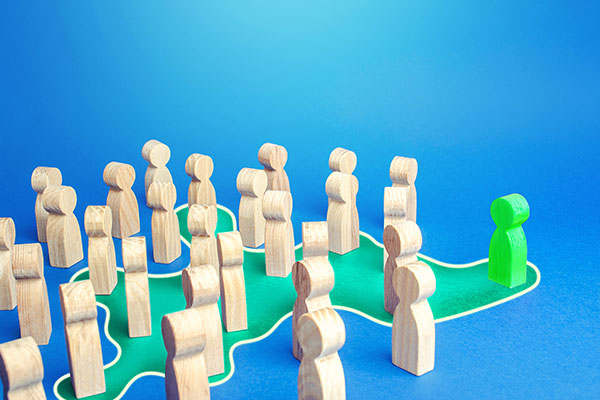
However, if their expectations are here and you’re only meeting them or falling short of them most of the time, they continue to put their guard up. They’re always questioning, “Is this the place for me?” They’re looking for outs. They’re looking for escape routes. There are a lot of other things that go into retention, don’t get me wrong, but at the foundational piece, it’s trust.
You brought up trust. I assume you maybe have heard of the book or anyone reading has heard of the book by Stephen Covey, The Speed of Trust. Trust is the foundation of so much of what happens when it comes to a client or employee retention or turnover. Retention or churn is a foundation of trust and expectations.
When you work with new sales reps back in the day, did you sit down and set out the expectations very clearly, simplify them so that they knew exactly where you guys were at and then keep revisiting that? How did you go about doing it? What’s the process that you use?
I have a couple of mechanisms that help people understand this concept better, but it breaks down like this. Most people, when you’re first starting something at something, you’re naturally wanting to tell them how awesome it is. If you’re a coach, for example, you’re wanting to tell them all of your best client results. Let’s use weight loss as an example. “Gary, I’m so excited you finally joined my program. We have Johnny who started with us a month ago. He’s already down 15 pounds. We got Sally. She’s been with us for six months, she’s down 60 pounds.”
We naturally want to tell people. We oftentimes don’t mean anything malicious by it, but we naturally want to tell people out of enthusiasm and excitement the great results that we can get people. I believe creating expectations for people is threefold. Number one, telling people what the top-tier results are. What are not typical results, but they’re top.
There’s nothing wrong with telling somebody, “Johnny started with me 30 days ago. He’s already down 16 pounds.” Do you back that up with, “Now, to be clear, Gary, that’s top 5% results. He had 100 pounds to lose. To give you an idea, you only have 30 pounds to lose. He had 100 pounds to lose. He has been the perfect student. He hasn’t missed a single workout and meal we’ve asked of him. I want to be clear while I’m sharing that with you so you know what’s possible, it is a top 1% type of result.”
The other side of that is, are you willing to tell people the bottom 10% of results? If you go on any of my content, one of the things I learned at Cutco was called 10/80/10. That is what’s the top 10% results, the bottom 10% results, and 80% results. The bottom 10% is, “Johnny, I want to be clear. One of my students, Michael lost zero pounds in his first four months with me.” You might be like, “Mike, I invested in your program and you’re telling me somebody lost no weight with you?”
He could have easily told me like, “Mike, your program’s a scam. It didn’t work.” Do you know what Mike recognized? He had developed better habits and routines in the last 100 days than he had in the last 10 years since he had left the Army. He was proud of the traction and the ups and downs that he worked through and he saw the vision of where we were still taking it.
He ended up losing 30-plus pounds in the next nine months and has continued working with us from there. I’m glad he didn’t give up. Here’s what you can expect as a norm. The 80% average results are that most of our clients, as long as they’re following the program, even if they’re not perfect, will lose about 1 pound per week.
Maybe a little bit more, maybe a little bit less, but 1 pound per week. If you’re in a 24-week program, losing 15 to 25 pounds is not out of the question. Yes, Johnny lost 16 in his first 30. Mike lost it in a year. That’s an example of establishing expectations is not telling people the top end results, but telling them all the different tiers of what one could expect because there’s a great quote.
Point number two here, people don’t care what could happen to them. They care more that you told them it could happen to them. There’s something about trust when you told them, “By the way, this is possible. Here’s what we’ll do if that happens. When that happens, I want you to schedule an extra call with me and say, ‘Mike, I thought after 90 days. I’d be making $10,000 already. I’m only making $3,000 a month.’”

Here’s what I want you to do. I want you to schedule a call and we’ll assess what’s going on and we’ll tweak the small things. If that’s you, you’ll be the next Adrian. Adrian was underperforming in his first four months. He went on to make $100,000 in his first 12 months with us, but it took him a little while to get going. Have we had students that made $20,000 in their first month with us? Yes. Imagine if that’s all I told people, $20,000 a month right out the gate, and then they only do $4,000.
For some people, Gary, $4,000 in extra income could be life-changing, debt-free, paying their mortgage, whatever. Now they’re sitting there thinking they’re a failure, I let them down, or I lied to them because I only told them about the $20,000 results. There are proper expectations. People don’t care what can happen to them as long as you told them it could happen to them.
Lastly, number three is expectations on relationships. I love, in any new working relationship, having the what you can expect from me, but what I expect from you conversation. This is what you can expect from me, but I also want you to know what I expect from you. As part of that conversation of what you can expect from me, I oftentimes share the good and the bad about my personality.
Just so you know, I can be very serious and all go business and sometimes forget to slow down and say, “Gary, how are you doing?” I want you to know that’s my nature. I care immensely about the people around me, but I sometimes forget to show it because I’m so intense about let’s get people results. I’ll tell people that. Your more relationship-building type of personality doesn’t go, “Mike’s an a******. He doesn’t care.” I set up expectations that way, 10/80/10. Tell people what could happen to them and what to expect and build expectations on relationships.
Michael, when you took the WHY.os discovery, your why was to create relationships based upon trust, like we talked about. How you do that is by making things clear and understandable first for yourself and then for others. Ultimately what you bring are simple solutions. You simplify it down to a couple of points. You have done exactly that during our conversation. You’ve created trust by clarifying what’s going on and then simplifying it down to 2 to 3 points. Every time I ask you a question, you say, “I got two things to that. I got three things.”
That’s the teacher within me.
It’s a great example of your WHY.os and how you live it because that’s very powerful the way that you do that. If trust is the most important things, being clear and being simple are important for that.
You said something during your introduction that I thought was interesting. I forget exactly how you said it, but you said trust is built when we are the living example of what we’re asking other people to do. That’s why I said earlier, expectations, relationships, and leadership. I love John Maxwell’s concept of the Law of the Mirror. People won’t follow what you tell them to do. They’ll follow what they see you do. That’s part of relationship building and setting proper expectations and trust as well.
[bctt tweet=”People won’t follow what you tell them to do. They’ll follow what they see you do. I think that’s part of relationship building and setting proper expectations and trust.” username=”whyinstitute”]
One of the things that I talked about in the intro to the Why of Trust, which is your why, was educating yourself to a very high level so that you can be the trusted source. For those of you that are reading, Michael, what is in the background behind you?
It’s a bookshelf. Everybody has a bookshelf. My fiancée gets credit to what you’re referencing. It’s a color-coded, size-ordered bookshelf. It’s color-coded from tallest to smallest book and then back to small. Kayla, my fiancée, said it’s aesthetically pleasing to the eye as well.
How many books are there?
I have another couple dozen on the floor over here and hundreds over here. I don’t know the number, but it’s a good amount.
How many have you read?
I don’t know a real number, but I’ll answer that question with this because I don’t have a real answer. Through my twenties, I was obsessed with the quantity of books I was reading. I studied books a lot. My life changed more in my 30s, though. That’s when I started studying books for quality instead of quantity. I’ll skim books. I’ll Audible the first five chapters and go, “This is good, but not for me.” Once I find a book back to the whole, become an expert at a subject and that’s how you become trusted. Once I find a subject that I’m like, “I want to live this or implement this in my life,” I’ll listen to that book or read that book a couple of dozen times.
In one year, maybe I only read ten books the whole year, but the book Scaling Up, for example, I read it 16 to 25 times over and over again. I probably have listened to Think and Grow Rich three times every year. I know that’s not what you’re asking. How many books? I don’t know the number, but through most of my twenties, it was a bragging game of how many books I read this year. Now it’s much more about what book did I study, implement, and become an expert of.
That’s another aspect of the Why of Trust. You’re not going to answer because you don’t have an actual answer. I’m not going to answer. You’re not going to answer me because I can’t tell you the truth. I can’t tell you a number so I’m not going to say it. Take us through a day in the life of Michael Chu.
I’ll answer that question by bringing you back years ago and we referenced the whole, “I haven’t drank alcohol in years.” I had a dark point in my life. I had made all this money and I was in my early 30s. I told you I was questioning what’s it all for and I decided I had to reinvent myself. It’s funny that you’re talking about trust and here it comes back again because the password to my phone has been Integrity15. How that ties back into the routine is I’m not a big fan of long morning and evening routines, but I do believe that routines or rituals dictate the results we create in our life. A lot of the routines I’m talking about, I do day in, day out and make sure it’s grounded in me.
[bctt tweet=”Routines or rituals dictate the results we create in our life.” username=”whyinstitute”]
It’s pretty simple. I’m a night out by nature, so I’m not the up at 4:00 or 5:00 AM type. I oftentimes get up and like to get to work pretty quickly. I do something either called a power walk or a power shower. I do my morning routine while walking or showering and I can get it done in 10 or 15 minutes, which is three segments.
It is gratitude. I’ll take 2 to 5 minutes and address some gratitude. I’ll then remind myself what my goals are for the year and then I’ll set my intentions on who I’m committed to being for the day. I can do that in 5 to 15 minutes. I dive right into spending a little bit of time with my daughter and my fiancée before they head off to school. I get into anywhere from 2 to 4 hours or maybe 5 hours of deep work.
At least 4 days a week, maybe 3 at a minimum, 5 at a max, I’m starting off my day with no meetings and deep work, a big project that’s going to move the needle. I oftentimes take a break to reset. I’m a big Brendon Burchard fan. High Performance Habits talks about the first habit is high performers stop to recreate clarity often. I’ll stop and reset in the middle of the day to set my intention for the second half of the day. What are my biggest priorities and things like that?
At that point, I normally dive into either leading my team, coaching clients, or catching up on any other last projects. I try and work out. I either do martial arts or lift weights. During the summer, I like to go out and surf. I like to try and get active most days and then spend time with the family before heading to bed at night. Sometimes I’m at night owl and Kayla will go to bed early and I’ll get some projects done.
I think because of karate when I was like a young age, I wasn’t the kid in bed at 8:30. I sometimes wasn’t out of class at seven years old until 9:00. Sometimes I’m used to everyone goes to bed and from 10:00 PM to 1:00 AM are sometimes my most productive hours. I’d say maybe 1 or 2 days a week, I’ll put it in late night session to finish up some night stuff. Weekends are chilling with family. Sundays are completely disconnected and off and we’ve got a date night every week and things like that in there. That’s the daily or weekly routines in there.
I got about five pages of notes now from our conversation, so that is awesome. Michael, if there are people reading that want to get ahold of you, follow you, or work with you, what’s the best way for them to get in touch with you?
There are a couple of different ways. Instagram’s the easiest way to follow me and all the things going on in my world and my handle there is @Mike__Chu. However, if you are a coach, an expert or a consultant, we have a free resource for people who are in that industry and you could go to www.ChampDev.com/free and there’s a free three-part training on how to reduce churn, increase retention, and extend client LTV.
There’s a high value no fluff three-part training that people could get for free there at ChampDev.com/free. Instagram’s the best way to follow me and be in my world. If you want to get a resource and check out more what we do, you could go to that website and check out the free resource that we have.
Michael, thank you so much for being here. I’m glad we finally got to do this. I know this was way more than I expected and I don’t know why I didn’t expect it, but it was valuable stuff that you talked about. Thank you so much for sharing.
It’s my pleasure. Thank you so much for having me.
Important Links
- Michael Chu
- The Speed of Trust
- WHY.os
- Scaling Up
- Think and Grow Rich
- High Performance Habits
- @Mike__Chu – Instagram
- www.ChampDev.com/free
About Michael Chu
 Michael Chu is the creator and founder of Champion Development Inc., the premier coaching and support program for executives, fit pros, and entrepreneurs.His background started in direct sales leadership and over the last 15 years, he has been the CEO for 5 separate businesses that have generated over 7-figures in revenue.
Michael Chu is the creator and founder of Champion Development Inc., the premier coaching and support program for executives, fit pros, and entrepreneurs.His background started in direct sales leadership and over the last 15 years, he has been the CEO for 5 separate businesses that have generated over 7-figures in revenue.
Michael is also one of the only coaching mentors who still has an active and thriving health coaching business in conjunction with his business coaching programs.Mike uses Somatic Therapy and other mindset techniques to stay in a champion mindset while he runs his companies. He is very passionate about helping other coaches avoid the burnout that often stops them from serving their clients.
He is dedicated to helping entrepreneurs scale their business and marketing efforts – whether you’re starting from scratch or from going from six figures to seven figures.
Michael teaches his clients how to turn their Passion into Profits and generate massive impact and profit using the Maximization Model and the The LTV Method.

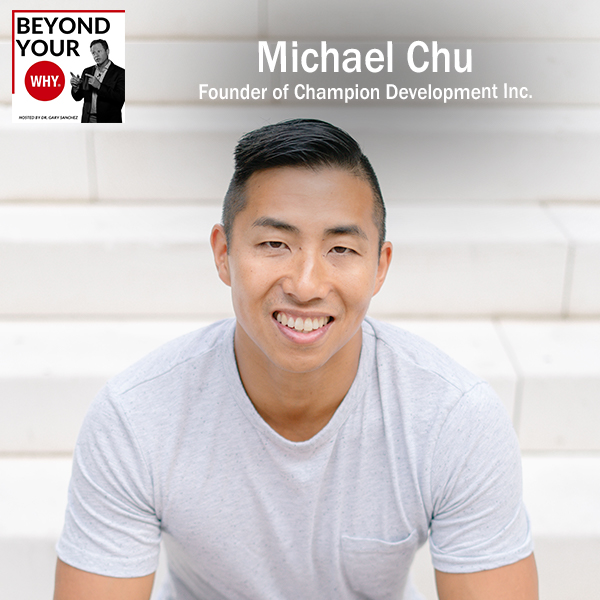
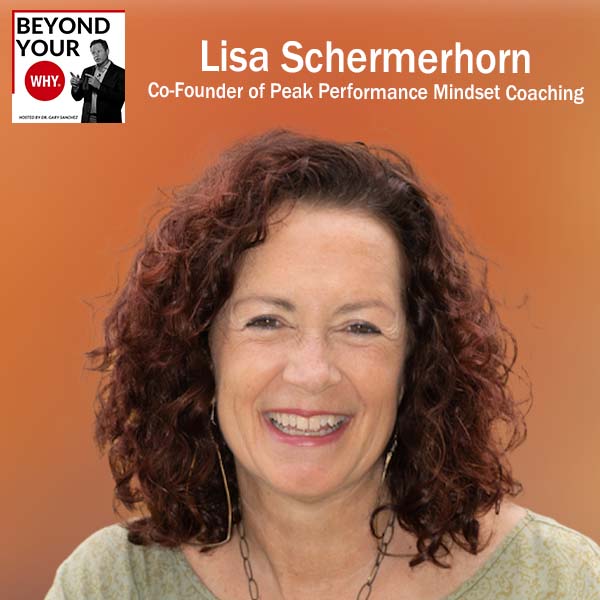
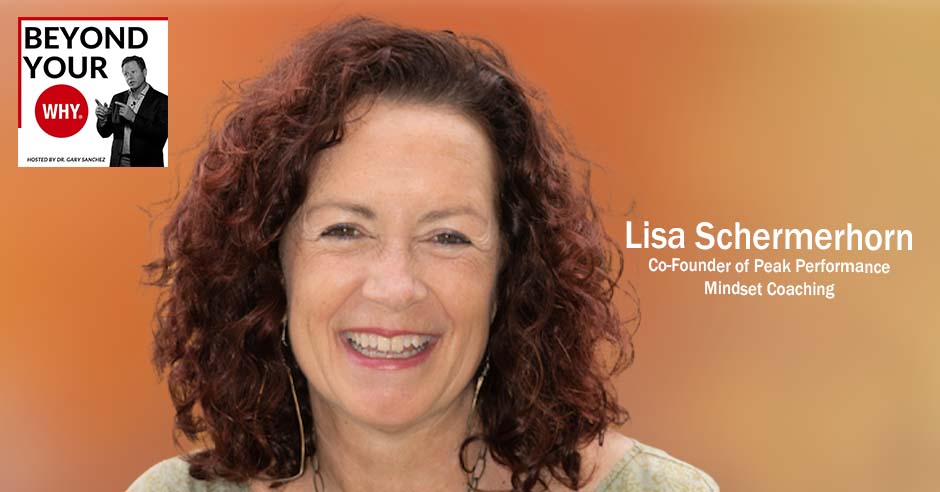
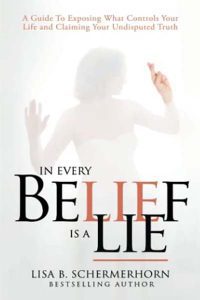



 Lisa Schermerhorn is as a transformational leader, award winning speaker and expert in the fields of human behavior, leadership and personal development. She also trained in the “Winners Mindset” with Bob Reese, the former head trainer for the NY Jets and helped a professional golfer win Golfer of the Year!
Lisa Schermerhorn is as a transformational leader, award winning speaker and expert in the fields of human behavior, leadership and personal development. She also trained in the “Winners Mindset” with Bob Reese, the former head trainer for the NY Jets and helped a professional golfer win Golfer of the Year!

 A camaraderie is very important to feeling valued in the workplace for someone with the WHY of Trust. Not only from desk to desk, but that they can grab a beer after work or talk about their weekends together. When it comes to employer, employee relationships you can count on them to get their tasks done on time and while praise is not necessary, it helps them know you see the value in them. Trust’s love a fun, family-style work environment.
A camaraderie is very important to feeling valued in the workplace for someone with the WHY of Trust. Not only from desk to desk, but that they can grab a beer after work or talk about their weekends together. When it comes to employer, employee relationships you can count on them to get their tasks done on time and while praise is not necessary, it helps them know you see the value in them. Trust’s love a fun, family-style work environment.
